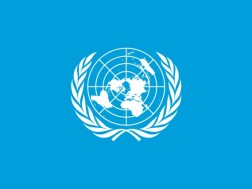MPs of the Georgian Dream have proposed changes to the Tax Code related to offshore zones, which the Parliament is considering in an accelerated manner. The reason for these legislative changes may be the interests of Bidzina Ivanishvili, the founder and honorary chairperson of the ruling party. However, at the same time, these changes are going to increase the risk of the inflow of capital of criminal and Russian origin into Georgia.
The proposed changes establish a number of tax exemptions in the event of the transfer of assets of an enterprise registered in a country with preferential tax treatment (offshore area) to an enterprise in Georgia:
1. As part of the transaction of transfer of assets, the income received by the foreign enterprise registered in an offshore area and the physical person who owns it are exempted from profit and income taxes;
2. Bringing of an asset or goods into Georgia is exempted from import tax;
3. An enterprise in Georgia that received assets from an offshore area is exempted from property tax until January 1, 2030.
According to the explanatory note to the draft law, investments are often made in Georgia by enterprises registered in offshore areas that operate in Georgia through their subsidiary enterprises, which contains a risk of tax evasion, while the transfer of assets by an “offshore company” to Georgia is going to decrease this risk. It is also noted that this is going to ensure the transparency of economic activities.
The initiation of these legislative changes in parallel with the “Russian law” and consideration in an accelerated manner raises a doubt that its real goal is to contribute to the transfer of the assets of Bidzina Ivanishvili’s offshore companies to Georgia. It should also be taken into account that Russian businessmen and oligarchs often use the practice of offshore companies, and the proposed legislative changes would allow them to transfer their assets to Georgia with tax exemptions. Also, since the tax exemptions covers the import of goods owned by an offshore company, it also covers the goods that may not be related to business activities - for example, high value and luxury items such as works of art.
According to a 2021 study by TI Georgia, Bidzina Ivanishvili owned 20 offshore companies.
Precisely due to the lack of transparency of offshore companies, for years now, our organization has been demanding the creation of a register of beneficial owners of offshore companies, which would decrease the risks that proceed from the anonymous ownership of these companies. Anonymous ownership, in its turn, increases the risk of corruption, including evasion of taxes.
However, the authorities have failed to work in this direction and only took an interest in the risks related to offshore companies when the likelihood of imposition of sanctions on Bidzina Ivanishvili and persons close to him by Western countries increased considerably due to adoption of the “Russian law”.
The explanatory note to the legislative changes does not contain arguments as to why it was necessary to consider the changes in an accelerated manner. Technically, this topic was initiated in a single package together with the initiative of writing off the tax arrears of physical persons, and the argument for accelerated consideration relates to the part of writing off the tax arrears rather than the part of offshore companies.
This initiative clearly demonstrates that Bidzina Ivanishvili has a vast influence on the executive and legislative branches of government and that the laws desirable for him are approved in an accelerated manner, without a broad discussion on the issue.
It should also be noted that offshore companies are often attractive for individuals who own assets of suspicious origin, and if Georgia activates a regime conducive to the transfer of assets from offshore areas, it must also establish a high standard of transparency. The identity of the persons who bring assets from offshore areas to Georgia must be public.
















